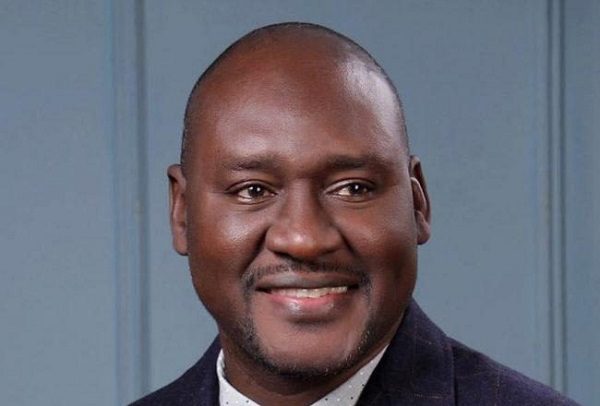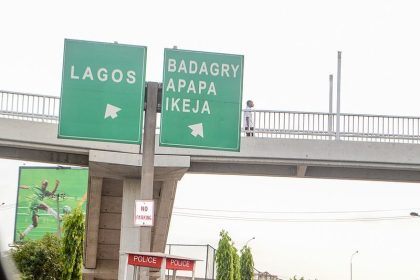At the just-concluded World Bank and International Monetary Fund Annual Meetings in Washington, D.C., Nigeria’s civil society made its presence felt. Among the most compelling voices was that of Auwal Musa Rafsanjani, Executive Director of the Civil Society Legislative Advocacy Centre, who challenged global leaders to address Africa’s deepening debt crisis and reform global financial governance. He spoke with Associate Editor ADEKUNLE YUSUF.
Takeaways from IMF, World Bank Annual Meetings in Washington, D.C
One of the most striking takeaways from this year’s International Monetary Fund (IMF) and World Bank Annual Meetings in Washington, D.C., particularly during the civil society sessions, was the deepening conversation around debt and debt sustainability. For many African countries—Nigeria included—the burden of debt has become an alarming drag on development, public welfare, and national stability.
Debt remains a critical concern because much of what African governments borrow is not channeled into productive sectors that drive growth or long-term investment. Instead, these loans often fund recurrent spending or consumption, with little transparency or accountability regarding their use. This pattern has left countries like Nigeria in a worrisome fiscal position, where debt servicing consumes an overwhelming portion of national revenue. Many of us within the civil society community believe this situation is unsustainable, unjust, and contrary to the spirit of genuine development financing. It is why we continue to advocate for greater debt transparency, responsible borrowing, and, in some cases, outright debt cancellation—especially for loans that have not directly benefited citizens.
Nigeria, in particular, is abundantly blessed with natural and human resources. What the country needs is not more loans, but stronger mechanisms to harness these resources effectively, block leakages, and curb wasteful spending. Reckless borrowing has only deepened dependence on multilateral institutions like the IMF and the World Bank, while domestic inefficiencies continue to stifle growth. During the meetings, we reiterated our call for these global financial institutions to reconsider the ease with which they approve new loans to African governments, especially when accountability mechanisms are weak or absent.
Another strong point raised was the need for civil society inclusion in the debt monitoring process. Across the continent, many national legislatures remain poorly informed about the specific terms and conditions of external loans negotiated by the executive arms of government. This opacity means parliaments are often unable to perform effective oversight or ensure that borrowed funds are used for genuine development projects. Civil society participation can bridge this gap by demanding transparency and ensuring that borrowing decisions reflect national priorities and public interest.
Beyond debt, discussions also touched on broader economic pressures—particularly inflation, the rising cost of living, and the erosion of citizens’ purchasing power. In many African countries, people are struggling to afford basic needs such as food, healthcare, education, and transportation. The situation has been made worse by the withdrawal of subsidies across key sectors, often imposed as part of the conditions for accessing international loans. Ironically, while developing nations are being urged to remove subsidies, many developed countries continue to maintain them to support their citizens in areas like agriculture, transport, and education. Africa, therefore, must return to the basics: build strong, transparent institutions, invest in its people, and harness its abundant resources to finance development internally. Only then can the continent free itself from the cycle of debt dependency and reclaim control over its economic destiny.
Nigerian Economy and the injustice of the debt trap for developing economies
One of the most persistent challenges confronting Nigeria is the fragile state of its economy, which remains largely monolithic. While many nations have diversified their production bases and embraced technology to drive inclusive growth, Nigeria continues to rely heavily on crude oil and gas as its primary source of revenue. This overdependence has left the country vulnerable to global price shocks and domestic inefficiencies. Even within the oil and gas sector, widespread theft, illegal mining, and poor accountability have stifled its full potential. The nation’s inability to provide clear leadership in economic diversification remains one of its greatest failings since independence.
Closely linked to this is the country’s weak infrastructure base, which has discouraged meaningful investment. Investors—both local and foreign—require a stable and efficient environment to thrive, yet Nigeria continues to struggle with unreliable electricity supply, poor road networks, decaying transport systems, and fragile digital infrastructure. The energy sector, in particular, remains underperforming, with generation and distribution capacities far below national demand. These persistent bottlenecks, coupled with worsening insecurity, have made Nigeria an unattractive destination for long-term investment. Businesses operate under enormous pressure, while millions of young people are locked out of productive opportunities.
Against this backdrop, the growing debt burden paints an even grimmer picture. The current debt trap facing developing nations like Nigeria represents not just an economic challenge but a structural injustice that perpetuates poverty and dependency. This debt spiral is partly a result of internal governance failures and partly the consequence of an unequal global financial order that favours lenders at the expense of borrowers.
For Africa, and Nigeria in particular, the tragedy is compounded by massive illicit financial outflows. Every year, billions of dollars leave the continent through corruption, tax evasion, and money laundering—funds that could have been invested in education, health, infrastructure, and social welfare. If these leakages were blocked, there would be little need for Africa to continue borrowing to survive. But corruption and weak institutional capacity ensure that borrowed funds are mismanaged, often diverted to recurrent expenditure and political patronage rather than productive investments that generate jobs and growth.
In Nigeria, the pattern of borrowing has been especially troubling. Most of the loans obtained are not directed toward capital projects or infrastructure but used to finance consumption and administrative costs. There is little transparency or public accountability in how these debts are incurred or spent. Civil society organisations have repeatedly called for inclusion in debt monitoring processes, given that even lawmakers in many African parliaments are not fully aware of the terms and conditions of these loans. The secrecy surrounding debt agreements has enabled mismanagement and mortgaged future generations to a life of perpetual repayment.
Even more disturbing is Nigeria’s growing tendency to borrow from commercial banks at high interest rates, further deepening fiscal vulnerability. As the Group of 24 (G-24) rightly observed during global financial meetings, developing countries are the most exposed to corruption and capital flight, largely because they have failed to establish robust systems to curb money laundering, illicit financial flows, and outright looting. As a result, money meant for roads, hospitals, schools, and small businesses is either stolen or wasted on unproductive ventures. The consequence is a vicious cycle: underdevelopment leads to more borrowing, and more borrowing fuels underdevelopment.
The injustice of this debt trap extends beyond domestic mismanagement—it is rooted in the very structure of the international financial system. Institutions like the International Monetary Fund (IMF) and the World Bank were originally created to promote global economic stability and assist developing nations in achieving growth. However, over time, they have become instruments of conditionality, often imposing policies that deepen inequality. African countries are routinely compelled to remove subsidies on fuel, food, healthcare, and education as a condition for accessing loans. Ironically, developed countries that champion these austerity measures still maintain generous subsidies to protect their own citizens in similar sectors.
This imbalance highlights the urgent need for reform within the global financial architecture. The current arrangement leaves African countries with little or no voice in decision-making processes. The governance structure of international financial institutions still reflects the post-World War II order, dominated by a handful of wealthy nations. African representatives are often invited only to endorse pre-determined decisions or receive tokenistic support—what one observer described as “peanuts.” Such marginalisation reinforces the dependency mindset that has long kept Africa at the periphery of global finance.
To break free from this cycle, Nigeria and other developing nations must push for a fairer, more inclusive international financial system—one that prioritises genuine development over profit. Equally, there must be a total overhaul of domestic financial management systems to eliminate leakages, strengthen anti-corruption mechanisms, and ensure that borrowed funds are transparently utilised. Civil society and the media must play stronger watchdog roles, while national legislatures should assert greater oversight on all loan agreements.
Nigeria’s abundant natural and human resources should be the foundation of its economic independence, not its vulnerability. The country must learn to generate wealth internally by investing in technology, value addition, and human capital development. Only then can it escape the injustice of the debt trap—a trap that continues to erode sovereignty, stifle development, and perpetuate the poverty of millions across the African continent.
Education, innovation and the future Africa must build
African nations, and Nigeria in particular, must urgently invest in education, science, and technology if they are to keep pace with a rapidly changing world. The global economy is now driven by knowledge and innovation, and without the right skills and capacity, Africa risks being left behind in the digital and artificial intelligence revolution.
Education remains the foundation of progress. Every major advancement in science and technology is powered by human knowledge. If citizens are denied access to quality education, they cannot meaningfully participate in or benefit from global technological shifts. That is why affordable, accessible, and quality education must be treated as a national priority, not a luxury.
Unfortunately, Nigeria’s education system has suffered decades of neglect. Public schools and universities are underfunded, overcrowded, and poorly equipped. Laboratories barely function, libraries are outdated, and research is virtually non-existent because there are no grants or institutional incentives for innovation. As a result, universities that once produced top-tier thinkers now struggle to conduct meaningful research. This has left Nigeria as a passive consumer of foreign technology rather than a creator of its own.
In the developed world, universities serve as engines of innovation. Governments invest heavily in research because they understand that every invention and technological leap begins in the classroom and the laboratory. In Nigeria, however, education has been reduced to a privilege for the few who can afford it. The political elite, rather than fixing the system, send their children abroad while local institutions decay. This attitude not only undermines public education but also deepens inequality and weakens accountability.
If Nigeria is serious about development, it must rebuild its education system from the ground up. Policymakers must recognise that without investment in human capital, there can be no sustainable growth. Reviving education requires adequate funding, modern infrastructure, improved teacher welfare, and curricula that reflect today’s realities in science, technology, and innovation. Partnerships between universities, industries, and government are also crucial to ensure that research is directed toward solving real problems—whether in agriculture, healthcare, or renewable energy. This linkage can transform research findings into products, jobs, and industries that drive inclusive growth.
The Civil Society Legislative Advocacy Centre (CISLAC) and other development advocates have long emphasised the need for financing for development—ensuring that national resources are channelled into productive investments like education, health, and research. But corruption, waste, and illicit financial flows continue to drain Africa’s wealth. Every stolen dollar is a classroom unfunded, a laboratory unequipped, a teacher unpaid.
The future belongs to societies that invest in people. Africa cannot borrow its way to progress; it must educate its way to greatness. Reviving education and research is the surest path to economic transformation. When Nigeria finally treats education as a national emergency and equips its citizens with the knowledge and skills to innovate, it will no longer have to depend on others for its survival. Education is not just a tool for development—it is the engine of freedom and the bridge to a better future.







